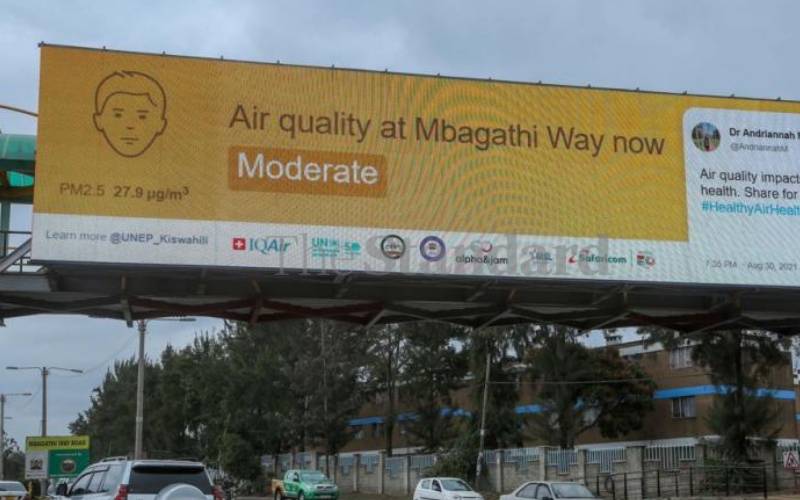×
The Standard e-Paper
Home To Bold Columnists

Digital billboard along Mbagathi Way, Nairobi. [Courtesy, Standard]
Residents of Nairobi will know in real-time the quality of air they are breathing using four recently launched digital billboards.